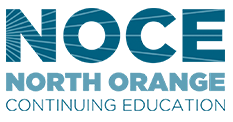
Financial aid (may be available)

Financial aid (may be available)

Financial aid (may be available)

Financial aid (may be available)
$89 total
No cost info

$220 to start
$440 total

No cost info
$3,550 total
Financial aid (may be available)
OPTI Medical Systems supports the Online Quality Assurance Program (QAP) to add value to your OPTI CCA-TS2 analyzer. Online QAP facilitates the evaluation of quality control (QC) data with that of your peers for trends and shifts. Do not miss out on these valuable services that OPTI Medical provides OPTI analyzer users at no additional charge.
No cost info
The Graduate Certificate in Quality Assurance Compliance provides an in-depth knowledge of the global regulatory and compliance requirements for the development, marketing approval, and clinical utilization of biomedical products in today’s dynamic global healthcare environment.
No cost info
This program is designed for the chemist, bio-chemist or biologist in the pharmaceutical and biologic industry new to quality assurance and control, and is beneficial to senior year undergraduates and graduate students (using concurrent enrollment) interested in a career in QA/QC.
The program focuses on the quality requirements for the production and control of biologics and drugs, and the differences between quality control and quality assurance and their interaction with manufacturing. It highlights the importance of implementing and maintaining a quality system during the early stages of drug development, including the plethora of documents and controls necessary to make such a system effective. Guidelines and regulations from the FDA and the California State food and drug branch regulate the production of drug products. Quality Assurance (QA) monitors the manufacturer's compliance to these guidelines and regulations.
Instruction covers how to write, issue and control SOPs; manufacturing directions; and how to review and archive a batch history and other relevant documents. Emphasis is placed on conducting inspections and vendor audits for compliance to cGMPs to include contract manufacturers, bulk pharmaceutical chemical manufacturers and contract test laboratories. The program covers cGLPs and their applications to audits of facilities that provide toxicological services. Details on compiling, writing and archiving audit reports is provided.
No cost info
Quality assurance training helps applicants for understanding the basic concepts of information technology and software testing which help them excel as Quality Assurance (QA) specialists. The quality assurance course also covers physical products in determining defects in manufactured products and preventing them, pre-production, SDLC-Software Development Life Cycle, Production Environment vs Sandbox Environment, Mantis Bug Tracker, and many more. During the QA online training, you will learn how to decode the application of dynamic and static techniques, conduct walk-thoughts and audits, create a quality analysis, perform boundary value analysis, and test plan hands-on through this Quality assurance certification training.
No cost info
Want to start a career in Quality Assurance? If you're in Baltimore, you can train locally, earn certification, and qualify for high-paying roles across industries.

Quality Assurance (QA) ensures that products, software, or services meet required standards before they reach the customer. QA specialists test processes, inspect outputs, and help teams reduce errors and maintain compliance.
To qualify for most QA roles in Baltimore:
When searching for quality assurance classes near you in Baltimore, it is essential to consider the following factors to ensure you find the best program for your needs:
Quality Assurance classes are designed to provide students with a comprehensive understanding of quality management principles and practices. Here are some common topics and activities you can expect to encounter in a quality assurance class:
Obtaining a certification in Quality Assurance can significantly enhance your job prospects and demonstrate your commitment to professional development. While specific certification requirements may vary, the general process usually involves the following steps:
Once you have completed your quality assurance training and obtained the necessary certifications, you will be ready to embark on your career as a Quality Assurance specialist. Here are some tips to help you find related jobs:
Once you have established a career in Quality Assurance, you may wish to further expand your knowledge and skills by taking additional classes. Here are some related classes you may consider:
Quality Assurance is a rewarding and in-demand career path. By enrolling in quality assurance classes near you in Baltimore, you can gain the knowledge and skills needed to excel in this field. Remember to consider factors such as accreditation, curriculum, instructors, hands-on training, flexibility, and cost when choosing a class. Obtaining relevant certifications and continuously seeking professional development opportunities can further enhance your career prospects. Dreambound is a valuable resource for finding vocational training programs, including quality assurance classes. Visit Dreambound to explore other vocational classes and career options available to you.
Dreambound has put together numerous guides to help you navigate the certification process in this field, tailored for various cities. For insights into the process or requirements in other states, see some of our additional guides below.
Thinking about a potential career transition? Dreambound offers detailed guides to help you with making an informed decision. Dive in below:
Dreambound's platform allows prospective students to find the right educational program for them through searching, filtering, and connecting with our extensive selection of career & technical education partners.
Dreambound has over 70 programs across healthcare, technology, business, and industrial trades. This includes programs such as Medical Billing, Cybersecurity, and welding.
Some of our schools offer financial aid for those who qualify. Many others offer payment plans, where you can pay the cost of class over time.
Yes, Dreambound offers many online programs. On Dreambound's search, you can filter by online, in-person, and hybrid (part online, part in-person).
Dreambound is completely free for you to use! We are supported by schools and organizations who pay to advertise on our website, so we can offer all of our career resources for free.